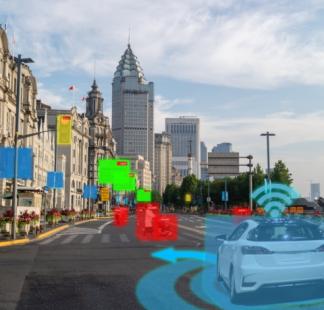Displaying 37 - 48 of 127
09 Feb 2026 - 12 Feb 2026
Face to Face
Organisée par l'UIT, la Banque mondiale et Smart Africa, en collaboration avec l’Autorité de Régulation des Télécommunications et des Postes (ARTP)…
Registration:
Open until 20 Jan 2026
Languages:
- French
16 Feb 2026 - 06 Mar 2026
Online instructor led
Many countries have begun to develop smart villages/towns/cities with varying degrees of success. This course focuses on the design and…
Registration:
Open until 09 Feb 2026
Languages:
- English
Open
Online self-paced
The training aims to strengthen the capacity of countries to produce ICT indicators and statistics according to international standards and…
Languages:
- English
16 Feb 2026 - 13 Mar 2026
Online instructor led
The rise of generative AI, Web 3.0, and the metaverse is reshaping the creative industries, unlocking new possibilities for content creation,…
Languages:
- English
02 Mar 2026 - 09 Mar 2026
Online instructor led
This course focuses on technical, business and regulatory aspects of QoS for Fixed and Mobile Networks. It includes QoS (Quality of Service) and QoE…
Registration:
Open until 01 Mar 2026
Languages:
- English
Open
Online self-paced
This training aims to strengthen the capacity of countries to produce ICT indicators and statistics according to international standards and…
Languages:
- English
02 Mar 2026 - 31 Mar 2026
Online instructor led
Este curso está diseñado para proporcionar a los participantes los conocimientos y habilidades esenciales en respuesta a incidentes y análisis…
Registration:
Open until 06 Feb 2026
Languages:
- Spanish
02 Mar 2026 - 30 Mar 2026
Online instructor led
The course highlights the shifts in telecoms regulation, regulation for e-commerce and digital government, regulation for cybersecurity, and skills…
Registration:
Open until 16 Feb 2026
Languages:
- English
Open
Online self-paced
In the telecommunications industry, price is no longer the sole factor in purchasing decisions. Service quality plays a key role to all stakeholders…
Languages:
- English
03 Mar 2026 - 23 Mar 2026
Online instructor led
As countries accelerate their school connectivity efforts, a parallel imperative emerges: the urgent need to build cyber-resilient educational…
Registration:
Open until 08 Feb 2026
Languages:
- English
03 Mar 2026 - 24 Mar 2026
Online instructor led
This course provides policymakers and practitioners with the foundational knowledge and practical tools to design effective data governance…
Registration:
Open until 01 Feb 2026
Languages:
- English
Open
Online self-paced
Wireless technology now drives the development and diversification of information and communication services for government, industry, and the public…
Languages:
- English








